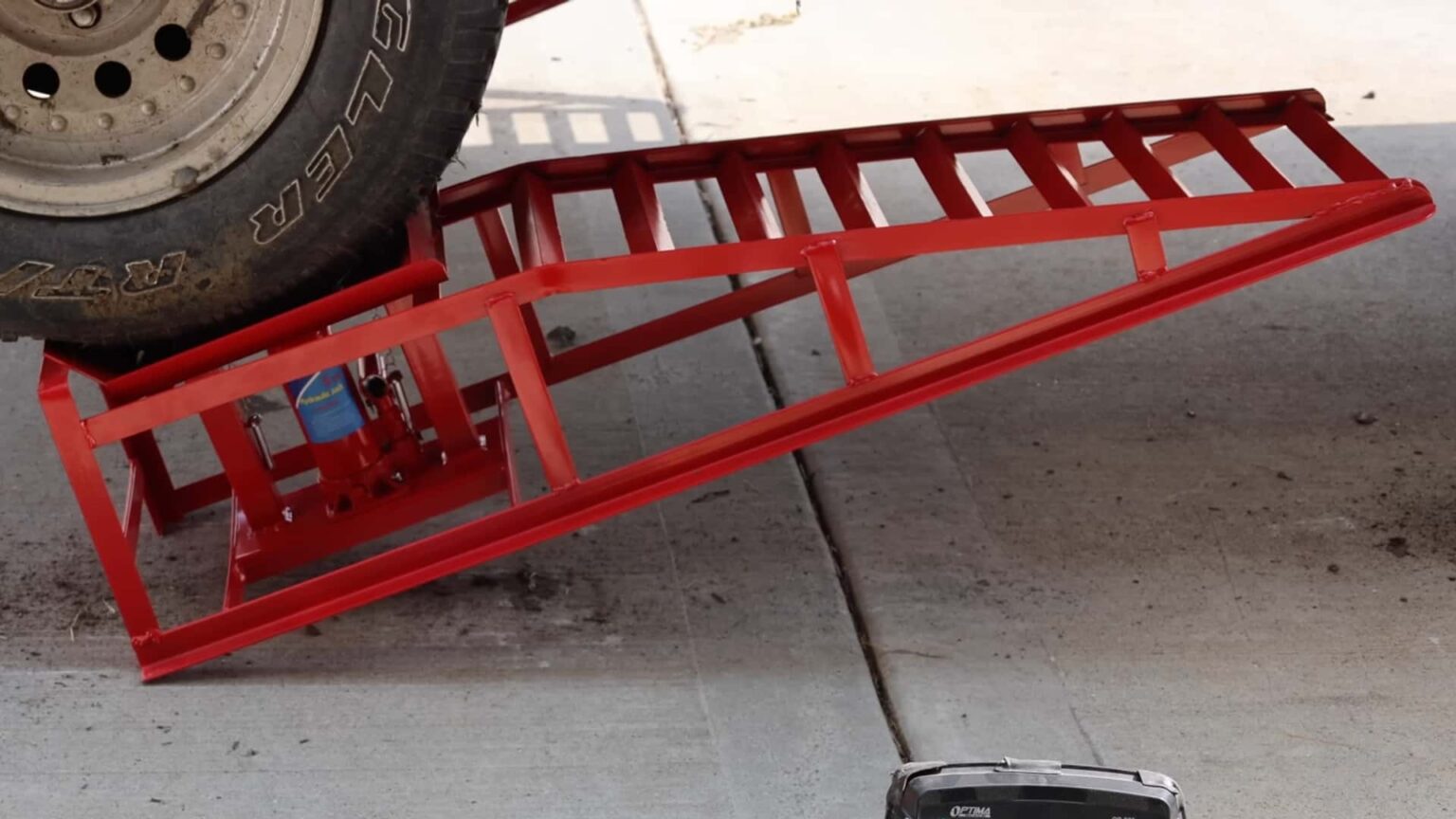Jacking up your car and placing it on jack stands is a time-consuming, menial task. Not everyone has the time or patience, so instead, there are car ramps. Car ramps are exactly what they sound like: Little ramps that you can drive your car onto, allowing for more access to things like the engine. But as this video shows, car ramps are pretty sketchy tools you should use with caution.
This comparison test from the Project Farm YouTube channel brings together 11 different car ramps, ranging from $58 all the way to $160 for a pair, to see which performs best under identical conditions.
Right away, it’s clear car ramps aren’t exactly the safest tools in the shed. Nearly every single one slips when the host attempts to drive on them with a rear-wheel drive truck. Many of the ramps don’t have sufficient padding, meaning they can’t grip the ground surface. The channel resorts to using water-soaked T-shirts as friction materials to get the ramps to stay in place.
Project Farm also used a Buick LeSabre to test for clearance and ramp grip for front-drive vehicles. That highlighted a new set of problems, including some ramps that couldn’t even accommodate the LeSabre’s very reasonable approach angle. The test also revealed that one ramp’s rubber pads were already starting to fail, while another ramp simply slipped and shot underneath the Buick’s rockers, causing a bit of damage. Another ramp shot out in front of the car as it descended to the ground.
The only test where the ramps actually impress is when load ratings are evaluated. Almost all of the ramps were able to hold up to the 7,750-pound front axle of a tractor, which weighed more than most of the ramps are rated for.
While car ramps can be useful in a pinch, especially for quick jobs like oil changes, we’d suggest against using them regularly, unless you can bolt them to the ground.
Read the full article here


